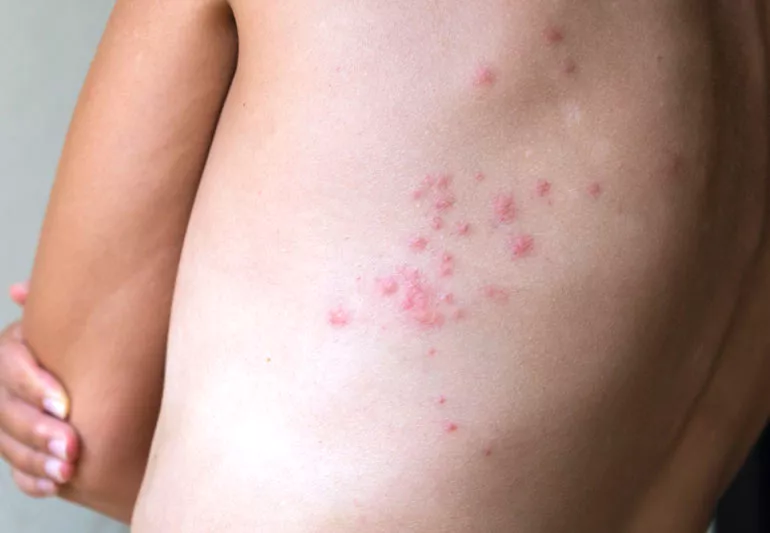

Bed Bug Bites vs. Mosquito Bites: A Comprehensive Guide
Introduction: Understanding the Differences Between Bed Bug Bites and Mosquito Bites
Distinguishing between bed bug bites and mosquito bites can be challenging because both often appear as red, itchy bumps. Yet, correctly identifying these bites is critical for effective treatment and prevention. While mosquito bites are seasonal and relatively harmless for most people, bed bug bites are a year-round concern that may indicate a growing infestation in your home.
Table of Contents
- Comparison Chart: Bed Bug Bites vs. Mosquito Bites
- Visual Guide to Bite Characteristics
- Biology of Bed Bugs and Mosquitoes
- Common Symptoms and Reactions
- Treatment and Relief Options
- Prevention Tips for Bed Bugs and Mosquitoes
- Resources and Additional Links
1. Comparison Chart: Bed Bug Bites vs. Mosquito Bites
| Feature | Bed Bug Bites | Mosquito Bites |
|---|---|---|
| Appearance | Small, red, clustered bites, often in lines or zigzags | Raised, red, isolated bumps, typically single bites |
| Bite Location | Commonly on exposed skin (arms, neck, face) | Exposed skin, especially arms and legs |
| Timing of Biting | Nighttime (bed bugs are nocturnal) | Daytime and dusk (mosquitoes are more active) |
| Reaction Time | Can take hours to days to appear | Often appear immediately |
| Symptoms | Itching, red welts, possible allergic reactions | Itching, swelling, rare allergic reactions |
| Risks | Potential infection, allergic reactions, psychological | Mild infection risk, rare disease transmission |
| Infestation Risk | High if not treated | Minimal – mosquitoes do not infest homes |
2. Visual Guide to Bite Characteristics
Chart: Visual Differences in Bites
| Bite Type | Appearance | Skin Reaction |
|---|---|---|
| Bed Bug Bite | Red, clustered, often in lines | Itchy, may last for days |
| Mosquito Bite | Single, raised red bump | Immediate itching, fades in hours |
- Bed Bug Bite Patterns: Bites typically appear in clusters or linear patterns, often along exposed skin areas during sleep.
- Mosquito Bite Patterns: Mosquito bites are usually singular and less predictable in arrangement.
For more visuals, check resources on pestline.ca, which provides detailed images of both types of bites.
3. Biology of Bed Bugs and Mosquitoes
Bed Bugs
Species: Cimex lectularius (common bed bug)
Characteristics: Bed bugs are small, flat, and reddish-brown. They hide in cracks and crevices near sleeping areas. They feed on blood and can survive for months without a meal.
Mosquitoes
Species: Varies, with common types like Aedes aegypti and Culex pipiens
Characteristics: Mosquitoes are flying insects with long, slender bodies. Females bite to feed on blood, often transmitting diseases like malaria and dengue fever.
Comparison Chart: Physical Characteristics of Bed Bugs vs. Mosquitoes
| Characteristic | Bed Bug | Mosquito |
|---|---|---|
| Size | 5-7 mm | 3-6 mm |
| Flight Ability | Cannot fly | Capable of flight |
| Lifespan | 6-12 months | 1-2 weeks |
| Disease Transmission | None | Yes, some diseases |
4. Common Symptoms and Reactions
Bed Bug Bite Symptoms
- Initial Reaction: Typically, bed bug bites do not hurt immediately. They appear as small, red bumps in clusters or lines.
- Allergic Reactions: People allergic to bed bugs may experience severe itching, blisters, or hives.
- Secondary Infections: Persistent scratching can lead to infections like impetigo or cellulitis.
Mosquito Bite Symptoms
- Initial Reaction: Mosquito bites are instantly itchy, with localized swelling.
- Disease Concerns: In rare cases, mosquito bites can transmit diseases such as West Nile virus, malaria, or Zika virus.
5. Treatment and Relief Options
Bed Bug Bite Treatments
- Antihistamines – Reduce itching and inflammation.
- Topical Corticosteroids – Apply hydrocortisone cream to alleviate swelling and itching.
- Cold Compress – Soothe the bite area and minimize swelling.
Mosquito Bite Treatments
- Antihistamines – Reduces itching and inflammation.
- Natural Remedies – Aloe vera and baking soda can relieve itching.
- Hydrocortisone Cream – Reduces swelling and discomfort.
6. Prevention Tips for Bed Bugs and Mosquitoes
Preventing Bed Bug Infestations
- Regular Inspections: Regularly inspect your home, especially bedrooms, for signs of bed bugs.
- Protective Encasements: Use mattress and box spring encasements to reduce hiding spots for bed bugs.
- Professional Help: Contact pest control services like PestLine to address any infestations effectively.
Preventing Mosquito Bites
- Use Repellents: Apply DEET-based repellents on exposed skin.
- Mosquito Nets: Sleeping under nets can prevent bites, especially in areas with high mosquito populations.
- Eliminate Standing Water: Remove stagnant water to prevent mosquito breeding.
7. Resources and Additional Links
- PestLine – Bed Bug Information and Control: For detailed bed bug control services in Ajax and Toronto.
- Centers for Disease Control and Prevention (CDC): Mosquito Bite Prevention
- National Institutes of Health (NIH): Guide to Insect Bites and Stings
Conclusion
Understanding the differences between bed bug bites and mosquito bites is essential for treatment and prevention. While bed bugs pose a long-term infestation risk, mosquitoes are more concerning in areas with prevalent diseases. If you suspect bed bugs in your home, consider reaching out to professionals at PestLine to explore removal options.
https://www.compendiumgroup.ca/pages/contact
For more information, visit our recommended links for reliable resources and in-depth analysis.



